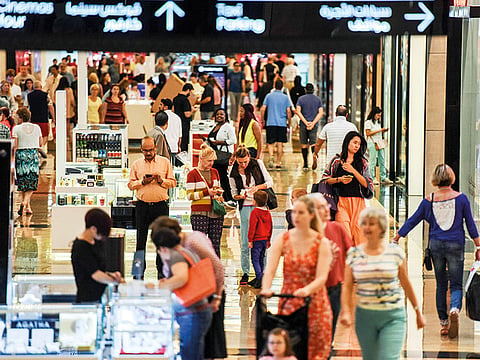Smart Dubai to take steps towards selling data this year
The government office will begin the process of commercialising its data, following consultations with the private sector

Dubai: Amid a period of significant change for the government agency, Smart Dubai is set to begin a process of commercialisation in the third quarter of 2017, according to its Director General.
Very soon, Aisha Bin Bishr said, the organisation would take the unusual step to begin monetising the data it has collected throughout Dubai.
The agency will split its data sets, which it gathers from multiple sources including sensors dotted throughout the city, into three distinct categories: raw data; contextual data; and government-only data. The data will be collected via a number of different sources, including through Smart Dubai’s partnership with du, information provided to government agencies, and from public sensors measuring things such as road traffic and footfall.
“This second category, we will put effort into, by adding insights, context or merging it with different data sets. This will be commercialised,” Bin Bishr, Director General of Smart Dubai Office, said in an exclusive interview with Gulf News.
Process to begin in third quarter
“We will start the discussion around monetisation in the third quarter with our partners from government and private sector,” she added.
Privacy concerns and the commercialisation of data has been one of the most polarising technology issues of the past decade.
Responding to the suggestion that citizens might be concerned with this move, Bin Bishr said: “This part, actually, we are starting the discussions around now. There is a full privacy policy to cover this component.”
She added that “very soon, you will see a disclaimer coming in any transactions with the government to ask you if you’re comfortable sharing your data. Previously we didn’t put such a disclaimer, but now we are considering it, and it’ll be part of the policies that are coming very soon”.
Private sector likes the idea
According to Okan Geray, Strategy Planning Consultant, Smart Dubai Office, the private sector is not against commercialisation.
Dubai’s smart government initiative, in its consultations with the private sector, has sought to understand their views on open data in addition to monetised data.
“Interestingly, the private sector is not against commercialisation. They see the value. We weren’t sure, to be honest, we thought they would push for openly-available data,” Geray said.
But it makes sense that they would be interested, he added, since this is “value added data”.
Majid Al Futtaim, Emirates, and Emaar are already on board, according to Bin Bishr.
A sign of the times?
At a time when the UAE is attempting to diversify its economy and reduce its reliance on oil, Dubai is increasingly looking for ways to finance new initiatives and projects without taxation.
However, Geray countered that whilst this move towards monetisation did have huge financial savings behind it, which would “enable Smart Dubai to have a financial impact”, it wasn’t driven by economic burdens.
“Those global fiscal pressures are in the background for everybody, I think, but if we can divert savings to new innovations, it will have a positive impact on the economy” he added.
Wanted: Data scientists
As part of the new strategy, Bin Bishr said that Smart Dubai “will provide data scientists as a service, in addition to providing our platform, our tools, and our Blockchain as a service, for use by the private sector”.
She noted that these services would probably come online in early 2018, and that Smart Dubai was in the process of hiring data scientists for these projects.
“Now that we have all this data, we said ‘let’s turn it in to a service, and productise it, so that the private sector can use it,’” Geray said.
“This is the direction we are going in the next three years,” he added.
The next big thing?
We are no longer living in knowledge economy, according to Bin Bishr. We are now living in a data economy.
With companies like Uber and Amazon being lured to Dubai, the emirate has set its sights on becoming a global hub for technology.
The government entity wants in on the action now.
“We want to leverage such industries here in Dubai, and that is why we made Smart Dubai. It’s why we are introducing new laws, and it’s why we built this platform,” Bin Bishr said.
Paperless government not just about headlines, Dh16 billion in savings expected
In a wide-ranging interview, Smart Dubai’s senior leadership outlined their vision for multiple technological advances, including a paperless government.
The emirate is attempting to achieve 100 per cent digitisation of all government services by 2021, Smart Dubai announced in April 2017.
“The financial savings are in the order of tens of billions of dirhams, both for businesses, and for the government, by our estimates,” according to Aisha Bin Bishr, Director General of Smart Dubai.
Smart Dubai also estimates 34 million trips to and from government offices will be saved over five years, saving money, time, and emissions.
“We estimate that roughly Dh16 billion will be saved, and half a million tonnes of carbon dioxide emissions,” Bin Bishr said.
She added that the measure will cut down congestion too.
The move comes at a time when Smart Dubai is attempting to turn its conceptual work into something more impactful. Both Bin Bishr and her chief strategist, Okan Geray, repeatedly refer to a paperless government having an impact.
This is not just about putting services online for the sake of it, Bin Bishr said.
“We need to make sure people actually use it, to have an impact on their lives,” she added.



